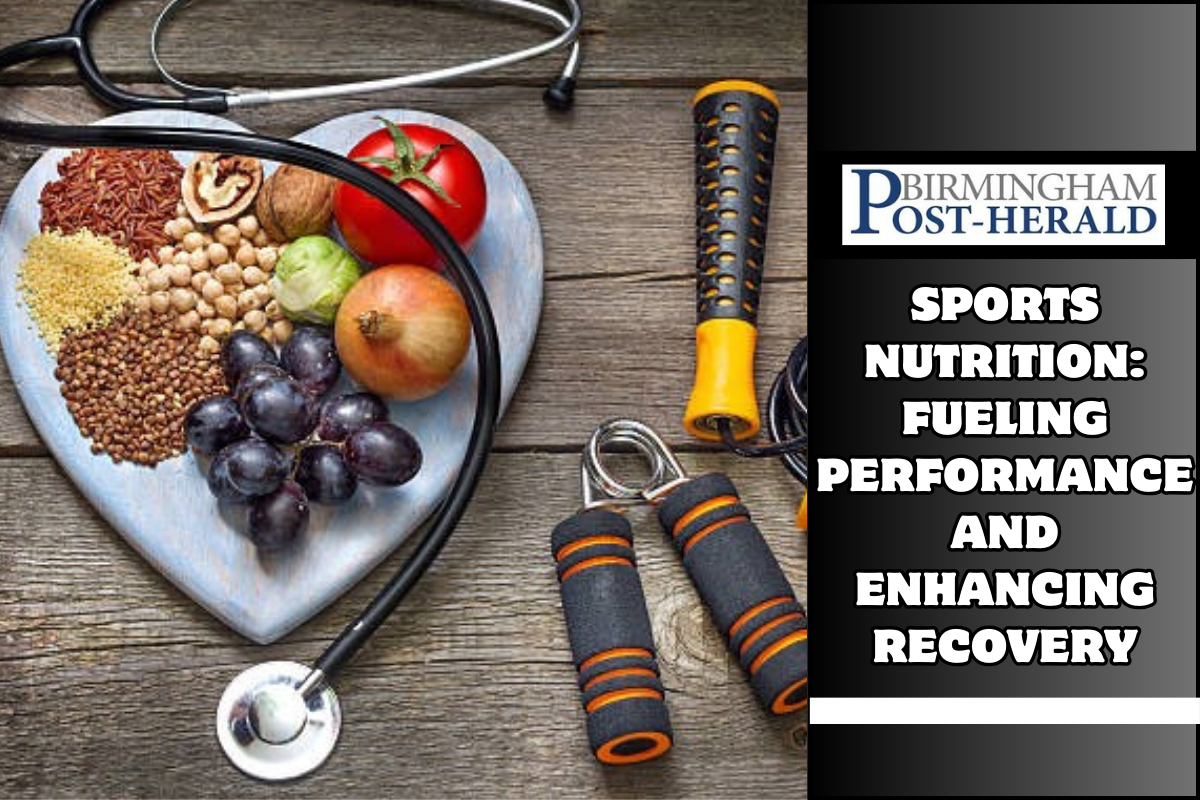Sports Nutrition: Fueling Performance and Enhancing Recovery:-In order to achieve ideal levels of energy, strength, and endurance, proper nutrition is an essential component in sports performance and recovery. Nutrition supplies the fuel that is required for these goals.
Sports Nutrition: Fueling Performance and Enhancing Recovery
In this article, we will discuss the foundations of sports nutrition, including the essential nutrients that athletes require in order to excel in their various sports, as well as tactics for maximizing performance and aiding recovery.
1. Understanding Macronutrients
- In order to fuel high-intensity exercise and replace glycogen stores, carbohydrates are required. Carbohydrates are the major source of energy for athletes, and they are essential for both of these purposes.
- Proteins are essential for the formation and repair of muscle tissue. Proteins also facilitate the recovery process and contribute to the development of lean muscle mass.
- Fats: Although they are frequently disregarded, healthy fats are a source of sustained energy, they help in the creation of hormones, and they facilitate the absorption of nutrients.
2. Pre-Workout Nutrition
- When it comes to timing and composition, the ideal pre-workout meals should consist of a healthy balance of carbs and proteins. This will allow for sustained energy and will also encourage the production of muscle protein.
- Hydration: Making sure you drink enough water is essential for preserving your performance and avoiding being dehydrated while you are working out. Before beginning their activities, athletes should make sure they are adequately hydrated by consuming different types of fluids and electrolytes.
3. During-Workout Fueling
- The maintenance of fluid balance, the regulation of body temperature, and the maintenance of performance are all dependent on the consumption of water on a consistent basis during physical activity.
- Electrolyte Replacement: Due to the fact that electrolytes like sodium, potassium, and magnesium are lost through perspiration, it is necessary to replenish them during extended workouts in order to avoid dehydration and muscular cramping.

4. Post-Workout Recovery
- Timing of Nutrients: Consuming a combination of carbs and proteins during the post-exercise recovery window (usually thirty minutes to two hours after exercise) improves the replenishment of muscle glycogen and makes it easier for muscles to repair and recover.
- Quality of Protein: Protein sources that are of high quality, such as lean meats, dairy products, eggs, and plant-based proteins, are a good source of essential amino acids that are required for the formation and preservation of muscle tissue.
5. Supplements for Athletes
- Whey Protein: Taking whey protein supplements is a convenient and efficient approach to enhance the amount of protein you consume after doing physical activity and to help the healing of your muscles.
- Branch-Chain Amino Acids (BCAAs): BCAAs, which include leucine, isoleucine, and valine, are essential amino acids that decrease the amount of muscle breakdown that occurs during exercise and increase the amount of muscle protein that is produced.
- Creatine: It has been demonstrated that taking a creatine supplement can improve muscle strength, power, and endurance, particularly while engaging in activities that carry a high intensity for a short period of time.
6. Special Considerations for Endurance Athletes
- Loading Carbohydrates: If endurance athletes want to maximize their glycogen stores and improve their performance during longer exercise events, they may benefit from carbohydrate loading tactics.
- Strategies for Hydration: It is necessary for endurance athletes to replace their fluids and electrolytes in the appropriate manner in order to prevent dehydration and preserve their performance, particularly when the weather is hot and humid.
7. Individualized Nutrition Plans
- Adapting Nutrition to Specific Sports: The energy demands and nutrient requirements of various sports should be tailored to meet specific needs. It is recommended that athletes collaborate with sports nutritionists or registered dietitians in order to build individualized nutrition regimens that are tailored to their specific requirements and objectives.
- Periodization: Nutrition programs should be periodized so that they fit with training cycles, competition schedules, and performance goals. This will ensure that athletes consume the appropriate nutrients at the appropriate times, which will maximize both their performance and their opportunity to recuperate.
Conclusion
The importance of sports nutrition cannot be overstated when it comes to enhancing athletic performance and facilitating recovery. It is possible for athletes to improve their physical performance, reduce the amount of time it takes for them to recuperate, and reach their full athletic potential if they give priority to foods that are rich in nutrients, make sure they drink enough water, and strategically time their meals and supplements.
